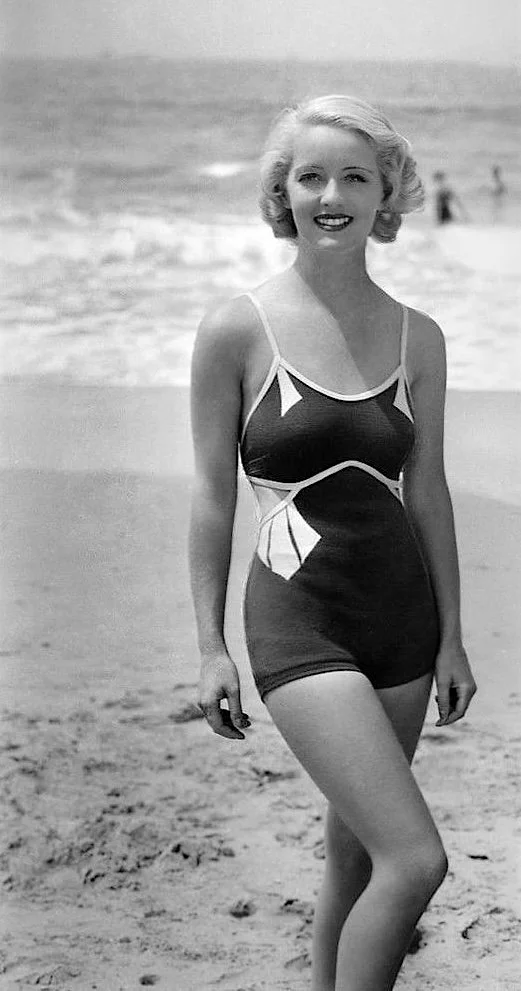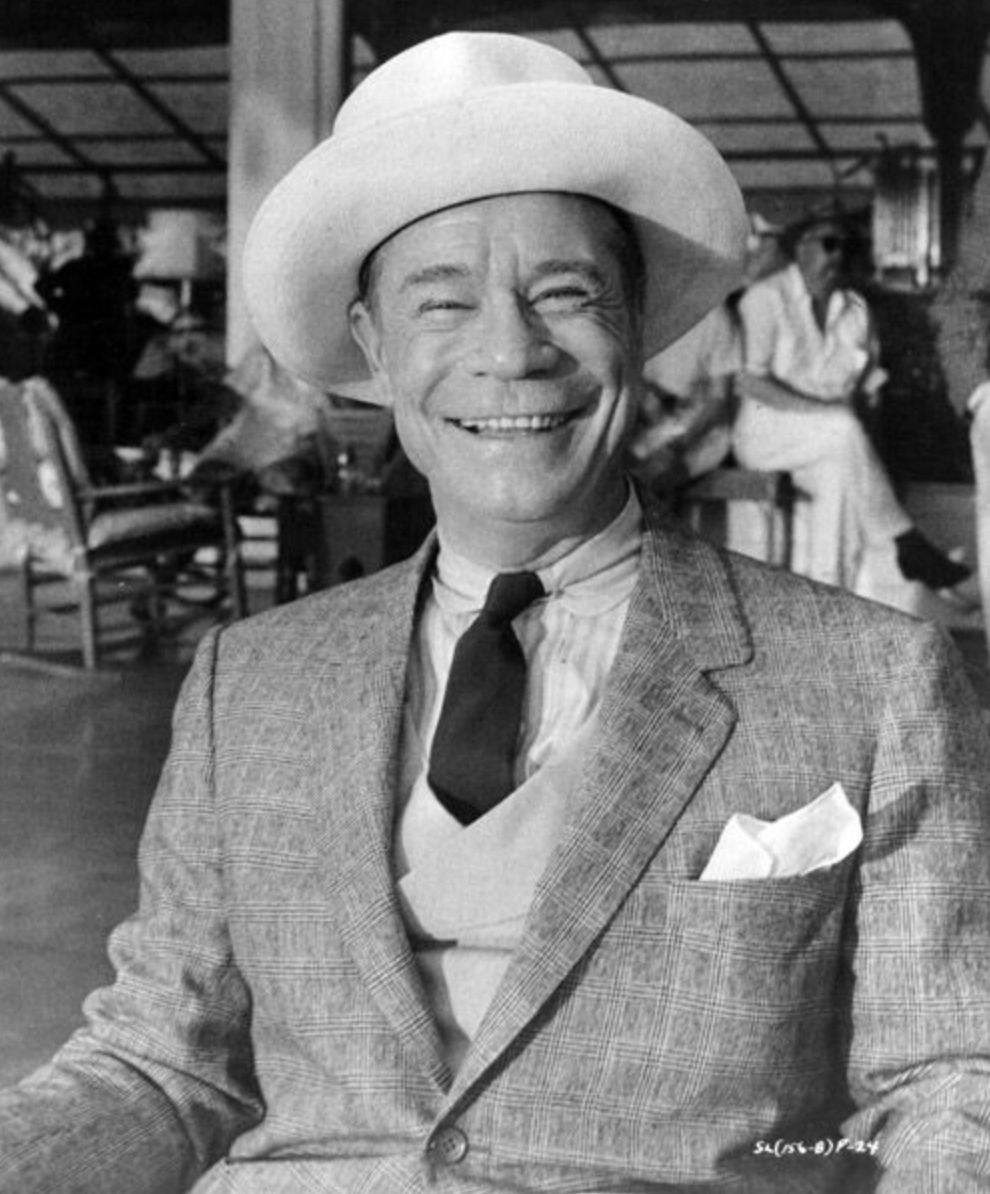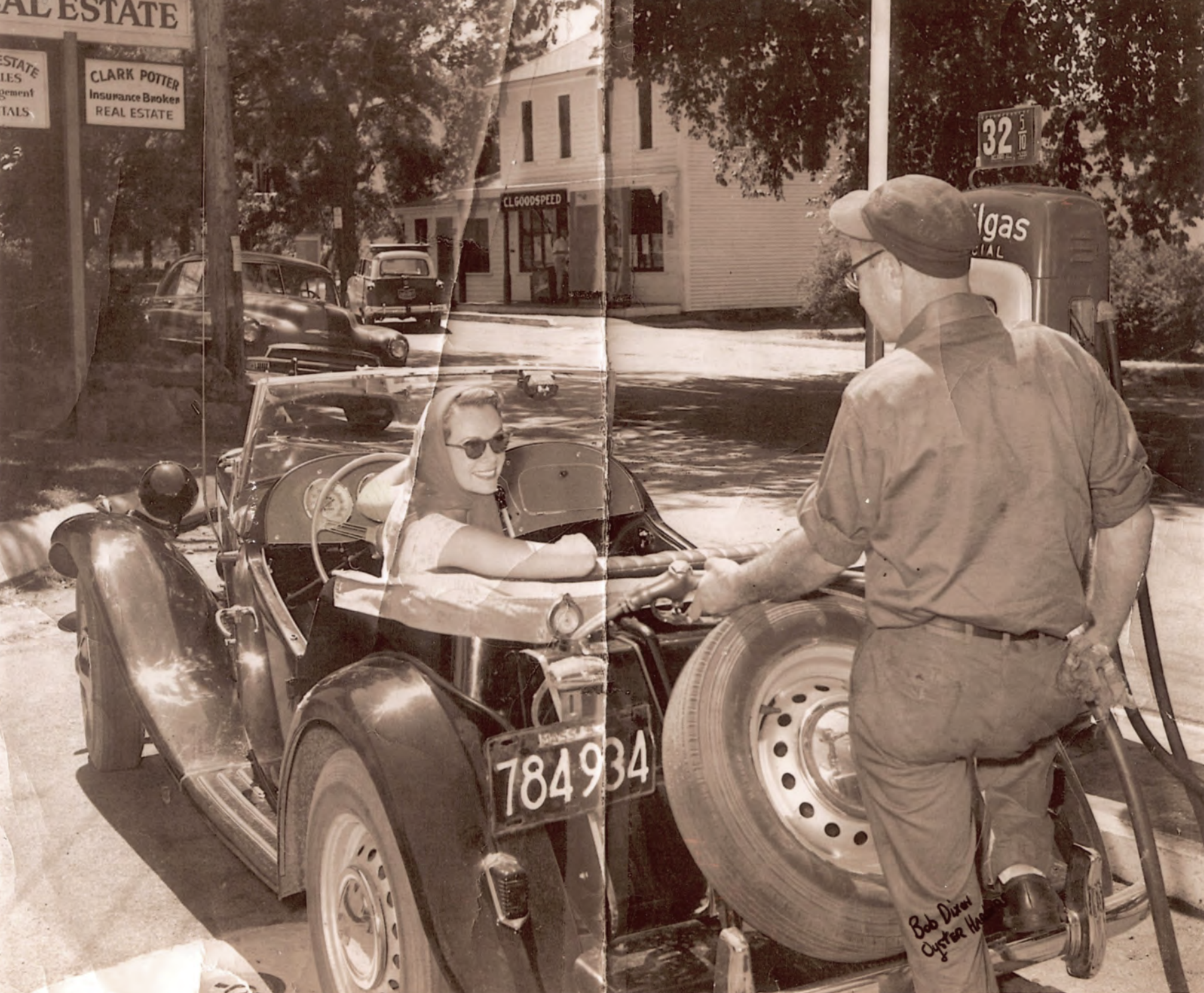The automobile brought dramatic changes for tourists visiting Cape Cod. No longer did travelers have to stay in hotels, relying on hotel transportation to and from the railroad. About ten years after the first cars appeared on the Cape, the Whittemore House was operating as an inn catering to visitors and tourists, as well as local townspeople.
Formerly located on the corner of Old Bass River Road and today’s Route 6A in Dennis, it was torn down in the 1960s to make way for a gas station. The house contained 8 bedrooms on the second floor, with two bathrooms, one for men and one for women. David Howard Whittemore and wife Sarah owned the property. Sarah ran it with their three children while David continued to run his butcher shop and sandwich shop next door, delivering to surrounding towns in his Model T meat wagon.
A view of the Whittemore House ca 1915, behind the young girl. (Photo from the Dennnis Historical Society digital archives)
The first guests arrived June 21, 1913. The guest books contained places for comments, giving an inside look at life in the house. People stayed at the Whittemore House for any number of reasons in those early years. Hunters were there, as were salesmen, tourists, musicians, military, and even secret lovers.
The second guest book (1916-1925) had only two entries in 1918, both on 8/27, then nothing was written until May 1923. Was the Whittemore House closed or is a guestbook missing? The Spanish Flu epidemic started late in 1918, scaring many Americans, or another possibility was that the times after World War I into the 1920s were economically depressed, felt especially hard on Cape Cod.
Everything changed for the Whittemores in 1927, when the Cape Playhouse opened. Founder Raymond Moore located his Playhouse in Dennis after Margaret Howes Richardson, manager of the tearoom and inn known as “The Sign of the Motor Car” urged him to build there. The Whittemore House was perfectly situated, being nearly across from the entrance to the Playhouse grounds.
In the Playhouse’s first year, most of the stars stayed at the Whittemore House. British actor Basil Rathbone and his wife were the first to stay, he appearing in the first show and three of the next four. Violet Kemble Cooper, co-starring with Rathbone, and her husband also stayed at the Whittemore House. Others that year included Leonard Mudie, Frederick Sullivan, Arthur Brander, and Charles Warburton. Judging from the profusion of NY addresses, most of the cast stayed there.
The next year, 1928, those who signed in included Henry Fonda, Robert Montgomery, Laura Hope Crews, Leonard Mudie, and Elizabeth Montgomery. Maurice Burke wrote “The Boy Actor” after his name.
A young Bette Davis
In 1929, Bette Davis stayed at the Whittemore House, signing in from Newtonville, MA. She first came to the Playhouse a year earlier to work as an usher, and was given a bit part in “Mr. Pim Passes By.” That year, she and her mother rented a cottage for the summer. In 1929 she starred in seven shows, and five in 1930. During the thirties, the rooms at the Whittemore House were filled with well known stars including Walter Abel, Mr. and Mrs. Humphrey Bogart, JC Nugent, Donald Brian, and Tamara Geva. One comment written in 1933 was “I shall be quite sorry to leave.” Other stars signing in: Doris Nolan, Philip Huston, Uta Hagen, Martha Scott, Oz Whitehead, and Mr & Mrs Richard Forbes.
Richard Aldrich, who leased the Playhouse after founder Raymond Moore’s sudden 1940 death, volunteered for the Navy in 1942. The Playhouse finished that season, but closed until after the war ended, reopening in 1946. Despite wartime gas rationing, the Whittemore House remained open during those years. Many visting military signed the guest book then, more in 1944 than in 1943.
Richard Aldrich, left, at the Playhouse in 1947
Big names continued in the 40s and 50s after the Playhouse reopened. Gertrude Lawrence came in 1950, even though she and her husband Richard Aldrich owned a house on nearby Hope Lane. Aldrich leased the Playhouse and Gertrude Lawrence was a star. Walter Matthau stayed there while starring in Glass Menagerie as well as critics Eliot Norton and Alice Lawton.
Actor Joe E. Brown. He may have acted crazy for the boys but he was actually a talented athlete who was scouted for professional teams. He chose acting instead.
The Whittemores had many interactions with Playhouse stars, but none more than former Yarmouth Fire Chief Dana Whittemore. He remembered many times being taken for ice cream by Bette Davis in her blue Chevy convertible. He and neighborhood boys played baseball in a field near where Dennis Public Market is today, where Joe E. Brown would join them and he “acted crazy and made us all laugh.” Brown had a windup that made his pitch go straight up in the air. The chief also remembered “Gertie” Lawrence, having pumped gas for her. She’d get out and look under the hood with him as he checked the oil.
Actress June Lockhart getting gas at the Dennis garage in 1953. (photo from the Dennis Historical Society Digital Archives)
Interactions continued when Julie Andrews came to Dennis in 1967 to star in the film “Star!” about Gertrude Lawrence. The fire chief’s son, David, got to drive her from church in a 1937 Cadillac LaSalle coupe. Later, he ate with her and the cast but sadly his driving scene never made it into the final version of the film.
The last person signing in at the Whittemore House was Diana Duckworth from Montreal, on August 11, 1963. The house closed shortly thereafter, and Sarah Whittemore died the following year at age 92. An era of fine innkeeping and hospitality had come to an end.
The inn was sold to Mobil Oil, and a gas station was built on that busy corner. Dennis Garage and the butcher/sandwich shop, also run by the family, were sold, eventually replaced by the Scargo Café. Aside from a very small section of the stonewall that used to be in front of the Whittemore House, little remains visible that hints at such a glorious and star studded past.
Researched and written by Duncan Oliver
Cape Playhouse cast photo, 1966. Can you spot a young Danny Devito, who played the role of The Mad Hatter and the Mock Turtle in Alice in Wonderland?







